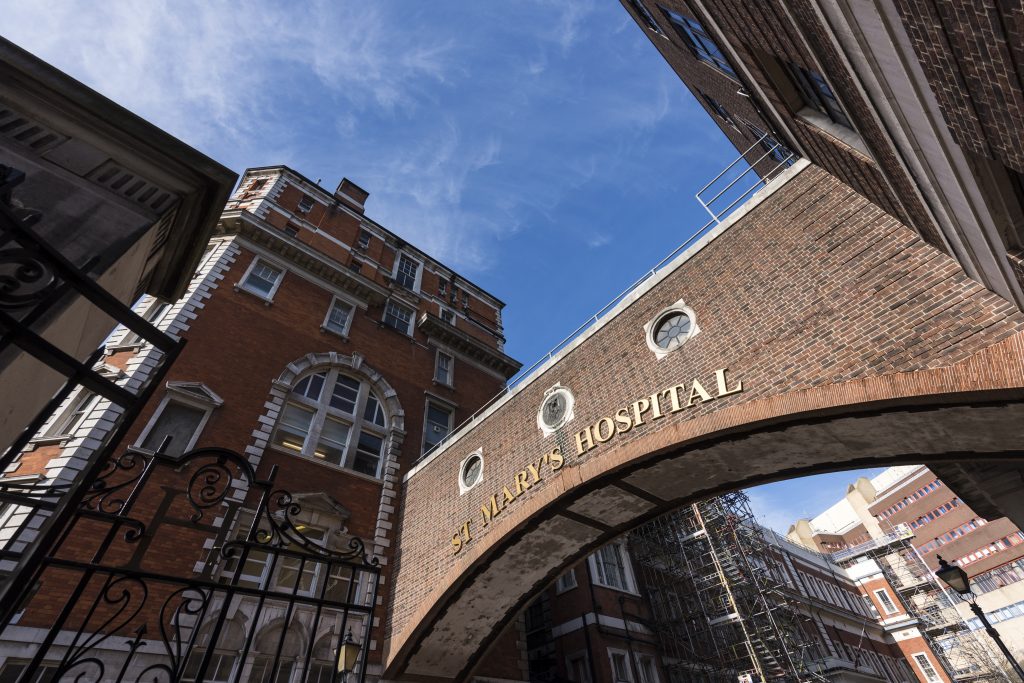
In the midst of a global pandemic, our people are continuing their endeavour to improve health and care. In this new series, we’re speaking to our IGHI community to find out how they’re adapting to working life amid coronavirus, and the unique opportunities and challenges this has presented them.
 Sutharsan Satkunarajah, IGHI Innovation Fellow
Sutharsan Satkunarajah, IGHI Innovation Fellow
“When I joined IGHI my role was to evaluate commercial opportunities for the Institute. But that’s completely changed; the pandemic slammed the handbrake on and I’ve done a bit of a U-turn.
“I caught COVID-19 back in March, alongside my wife and mother-in-law. After 8 days of fever, I recovered and was keen to do anything I could to help with COVID-19-related activities. I had capacity to take on new projects and I was assigned to support the Programme Management Office of the REACT programme, two large-scale studies looking at home coronavirus antibody and antigen testing. It’s been a very challenging role, but also one of the most enriching I’ve had in a long time.
“Our internal team is incredibly diverse; we have lab researchers, epidemiologists, health experts, patient engagement specialists, designers and communicators. This is on top of a huge number of external partners, from the government to diagnostics companies and other universities. They’re all feeding into the project, so it’s been intense keeping everything running smoothly. But I’m learning a lot about how to communicate to different audiences.
“My role in REACT is very varied, from identifying new testing kits to be included in the study to facilitating decision-making and modelling supply chain logistics. I put £1,000 on my wife’s credit card to buy pipettes for the testing kits! I’m really enjoying getting involved in things I didn’t know about before. And seeing our work make BBC headlines was amazing. It really speaks of the impact and urgency of the project.”
 Alex Shaw, IGHI Policy Fellow in Global Patient Safety
Alex Shaw, IGHI Policy Fellow in Global Patient Safety
“The main part of my role is working on the Global Patient Safety Collaborative, a partnership with the World Health Organization. This aims to improve the safety of care across the world through leadership, education and training, and research. We’re primarily working with four countries at the moment – India, Kenya, Pakistan and Mongolia, and we were due to begin in-country work in February. This is where COVID-19 has had the biggest impact; all of this has been postponed.
“The first phase of this work was aimed at capacity building and developing relationships to share experiences and learnings. We’ve started to do webinars in place of the visits. I was worried that people may not be as engaged given other priorities at the moment, but actually it proved the opposite. We had 39 people join our first webinar, a combination of representatives from the countries, and colleagues from across the College and the WHO. It was a great opportunity for countries to reflect on where they are in terms of patient safety and share opportunities to work together.
“While working alone at home has been a different experience, I’ve actually found that connecting with people both within IGHI and outside has come quicker, because everyone’s making more use of technology. I’ve also learnt a lot from the collaborative. It’s shown me the international spirit and commitment to patient safety, and people’s willingness to invest time in what’s important.”
 Mark Runciman, doctoral researcher, Hamlyn Centre
Mark Runciman, doctoral researcher, Hamlyn Centre
“For my PhD I’ve been working on a surgical robot developed by my supervisor, called Cyclops. This device attaches to endoscopes so that surgeons can carry out precise surgical procedures during endoscopies, like removing small tumours from the colon. My work aims to make procedures even less invasive by turning this existing rigid robot into a more flexible version based on soft robotics, while also increasing the surgical capabilities of the system.
“I’ve designed and built the system, and I was just about to start testing it. I’m in the third year of my PhD, at the stage where I really need to be in the lab getting results for my thesis. But due to COVID-19, I can’t get into the lab! That’s been a major challenge. Shortly before lockdown began, I grabbed as much equipment as I could from the lab and took it with me on a train back home to Scotland. With little space for clothes, most of my backpack was taken up with tools like actuators that I’m using to develop a control system for the robot.
“I still can’t carry out tests to get results, but with this equipment I can keep working on the system to an extent. It’s been a major challenge for me and the situation may mean I can’t get the results I needed. But I’ve been using my spare time wisely and have begun writing my thesis – that’s one silver lining. My PhD was also very full-on, so while I’ve not been able to make the progress I wanted, I’ve actually had time to do exercise! And in some ways, I’m speaking to my colleagues more often than before, as you’re conscious of making the effort. Keeping in touch has been something to keep us sane.”